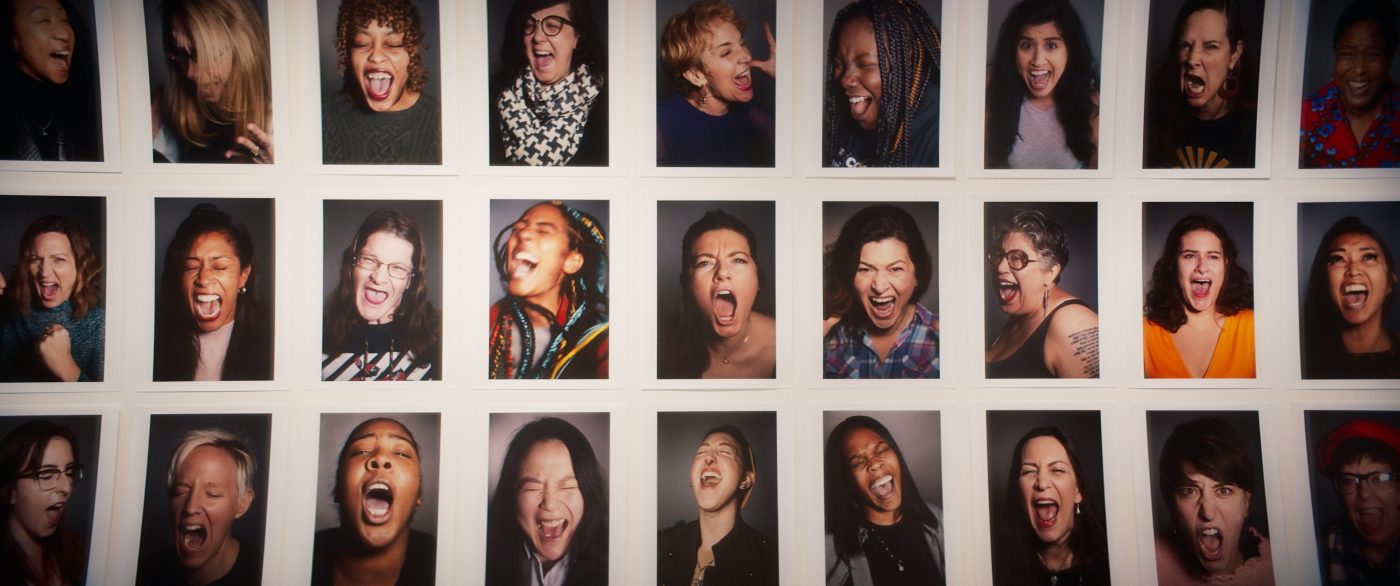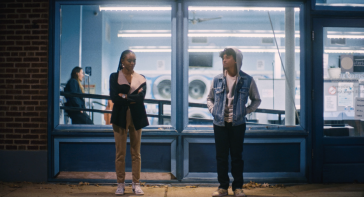By Ethan Tarantella
Alongside the major studio projects, locally produced films and potential Oscar contenders at the 34th Annual Whitaker St. Louis International Film Festival (SLIFF) are a number of independent queer documentaries. Some have been screened at festivals as big as Sundance, others are just starting their festival run, but all are worthy of checking out this November.
Three, in particular, stand out:

A Man with Sole: The Impact of Kenneth Cole
A Man with Sole: The Impact of Kenneth Cole
Thursday, Nov. 6 at 7:30 pm
Hi-Pointe Theatre
SLIFF’s Opening Night film this year is “A Man with Sole: The Impact of Kenneth Cole.” Cole will attend the screening of the film, which has also shown at the Sundance, Tribeca and DOC NYC film festivals.
“A Man of Sole” gives an inside look at fashion designer and activist Kenneth Cole, whose brand and activism creates awareness for AIDS, LGBTQ+ rights, unhoused people, gun control and other human rights crises. Director Dori Berninstein covers Cole’s 40-year career, including his current fight to provide a voice for mental health awareness.
For Emmett Williams, festival curator for Cinema St. Louis, the documentary was an easy choice for the opening night film. “[Sole] captures so much of what SLIFF stands for—humanity, creativity, and the belief that individual stories can inspire collective change,” said festival curator Emmett Williams. “It’s a deeply moving film about purpose and empathy, and it reflects the heart of this year’s festival: people using their art, their work, and their voices to connect and uplift others.”
OUTCRY: Alchemists of Rage
Nov. 9, 3:30 pm
Platypus
After being well-received at an earlier St. Louis screening, Clare Major and Whitney Bradshaw’s “OUTCRY: Alchemists of Rage” will be shown again. Admission is free.
This film began as a photography gig at UC Berkeley, where Bradshaw invited local women and gender-nonconforming people to a group session. In front of a camera, Bradshaw would provide a space for them to let out screams of rage, joy, and sorrow. After being photographed mid-scream, the participants’ images would be used for Bradshaw’s art gallery.
Enamored and inspired by the project’s personal touch – along with Bradshaw’s ability to create a safe and intimate session for everyone to let out their emotions – Major broached the idea of filming these sessions and turning the footage into a documentary. Bradshaw not only agreed with her proposition, but expanded upon it.
The duo traveled across the US, filming multiple ‘scream sessions’ with participants of a variety of backgrounds, including a group of grassroots activists in Dayton, Ohio, who were fighting for enshrining reproductive rights for women in the Ohio constitution.
Her most personal project, Major says “OUTCRY” gave her an unexpected opportunity to craft something unique, her own way.
“I work primarily as a freelance cinematographer on other people’s documentary projects, so this film is special to me because I directed it and was able to really follow my creative vision,” Major said. “Even during that first scream session with Whitney at UC Berkeley, I could picture exactly how I wanted the film to look, and I was able to make that happen.”
Working as director/camera-operator/field-producer, Major covered two years – a big chapter of Bradshaw’s long-running project, a photography collection with over 500 participants that the artist would show in art galleries starting in 2018.
Acknowledging the sensitive topics explored throughout OUTCRY – including sexual abuse and an increasingly hostile political landscape for women – the filmmakers made sure to provide comfort and catharsis for their subjects. Bradshaw contacted her participants and allowed them to screen the sections of the documentary they were featured in, giving them the choice to be included or not.
“Consent is hugely important for both ‘OUTCRY’ itself and in this film,” Major said. “We wanted to make sure that — even though everyone who took part in a filmed scream session knew ahead of time that it would be filmed, had heard us explain our goals for the film, and had signed a release — each individual was actually comfortable with what was included in the final film. Bradshaw herself was deeply involved in the editing process, watching multiple cuts of the film and providing notes. “It was essential to me that she be comfortable with how her story and her art were presented,” said Major.
Really Me: The Diary of a Soul in Transition
Nov. 9, 7 pm
Washington University’s Brown Hall Auditorium
A friend of Yardy’s since college, Hanke gave Yardy a series of video diaries documenting her transition. The only person to view the diaries, Yardy saw a journey worth sharing with the world. Yardy wished to share Megan’s story and perspective on the trans experience.
With Hanke’s consent, Yardy began filming her first two years transitioning, covering the day-to-day life with her wife and kids, her relationship with Christianity and her connection with the local queer community. Throughout filming, Yardy made sure that “Really Me” expressed the same qualities he felt in Hanke’s videos.
“She just let me into her life,” Yardy said. “The videos were very raw and honest and authentic, and showed me a side of what it took to transition that I thought other people needed to see.”
“Really Me” shines a positive light on the LGBT+ community, showing Megan performing burlesque, being a member of a queer karate dojo and finding acceptance in a local church. Noting the empowering nature in Megan’s life, Yardy and Groenink hope that her story can not only provide realistic representation for trans lives, but also start a conversation.
“I want people to come with open hearts and minds,” Groenink said. “I believe it to be a gift that Megan has opened and been so vulnerable to share her story so authentically, And I would love people to have acceptance for another human being. If you are in the LGBTQ community, or love someone in that community, and know that there are people in your life who maybe are people of faith that are a little bit open but don’t quite understand, have this discussion and talk about it. I think this film is a good bridge, a good conversation starter for the two communities to kind of come together.”
Screening at WashU’s Brown Hall on Nov. 9th, St. Louis will be the second stop for “Really Me’s” festival run, with the two directors planning to screen the documentary at more festivals in 2026.
OTHER QUEER FILMS AT SLIFF
Want more options? Other LGBTQ+-related entries include Duece, elle/elle, Fly Baby Fly, In Hell with Ivo, Love Birds and Nukkad Naatak. Dates, times, locations and ticket information for all films are available at CinemaStLouis.org.
All supporting queer representation while spotlighting topical issues. In support of SLIFF’s 2025 theme – Cinema without Borders – Cinema St. Louis is giving a cinematic space for the city’s queer community to see themselves in.
“The St. Louis LGBTQ+ community has always shown up for these stories, both on screen and off,” Emmett Williams said. “There’s a real sense of connection here—a willingness to celebrate authenticity and support one another. It’s part of what makes programming at SLIFF so rewarding: seeing audiences recognize themselves, or maybe understand someone else a little better, through the films we share.”



